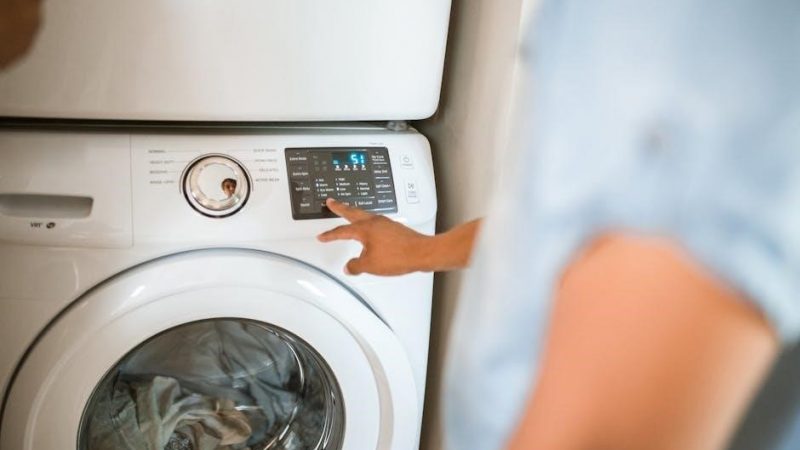nj cbt 100 instructions 2022

The NJ CBT-100 is New Jersey’s primary corporate tax form, enabling businesses to report income, calculate tax liability, and comply with state tax regulations annually.
1.1 Overview of the Form
The NJ CBT-100 is the primary form used by corporations to report income and calculate tax liability under New Jersey’s Corporation Business Tax. It applies to both domestic and foreign corporations conducting business in the state. The form includes schedules for income, deductions, and credits, ensuring compliance with state tax regulations. S corporations may file the CBT-100S instead, with specific instructions provided for accurate submission. Annual filing is mandatory, with detailed guidance available in the official instructions for 2022.
1.2 Purpose and Importance
The NJ CBT-100 is designed to ensure corporate compliance with New Jersey’s tax laws, enabling businesses to accurately report income and compute tax liability. Its purpose is to enforce fair tax compliance and generate revenue for state services. The form includes essential schedules for income, deductions, and credits, making it a critical tool for businesses operating in New Jersey.

Key Changes for 2022
The 2022 NJ CBT-100 introduced updated filing deadlines, new tax credits, and enhanced online submission features to streamline the tax process for businesses.
2.1 Updates to the Filing Process
In 2022, the NJ CBT-100 filing process was modernized with enhanced online features, allowing businesses to submit returns electronically with ease. This included real-time validation, digital signatures, and instant confirmation. Additionally, the process now supports bulk uploads for multiple filings, reducing administrative burdens. These updates aim to improve efficiency and accuracy for taxpayers.
2.2 New Regulations and Forms
For 2022, New Jersey introduced updated forms and regulations, including the CBT-100 and CBT-100S, to accommodate changes in tax laws. These updates included revised schedules, new filing requirements for pass-through entities, and additional documentation for tax credits. The state also implemented stricter compliance measures to ensure accurate reporting and adherence to amended tax codes, affecting both in-state and out-of-state corporations.

Filing Requirements

All corporations and S corporations operating in New Jersey must file the CBT-100 or CBT-100S, including federal forms and schedules, to comply with state tax obligations.
3.1 Who Needs to File
All corporations, S corporations, and certain pass-through entities operating in New Jersey must file the CBT-100 or CBT-100S. This includes foreign corporations with income derived from New Jersey sources. Businesses meeting specific revenue thresholds or conducting activities within the state are also required to submit the form. Failure to file may result in penalties and interest on unpaid taxes.
- Corporations: File CBT-100 for corporate income tax.
- S Corporations: File CBT-100S for pass-through taxation.
- QSSS Subsidiaries: Required to file annually.
3.2 Necessary Documentation
To accurately complete the NJ CBT-100, businesses must gather specific documentation. This includes federal tax returns (e.g., Form 1120), financial statements, and schedules detailing income, deductions, and credits. Additional documentation may include proof of tax payments, foreign tax credit forms, and any other supporting materials relevant to the business’s tax situation. Organizing these documents ensures a smooth filing process.
- Federal Tax Return: Form 1120 or equivalent.
- Financial Statements: Income statements and balance sheets.
- Supporting Schedules: Details on income, deductions, and credits.
Filing Methods
Businesses can file the NJ CBT-100 online or by paper. Online filing offers convenience and faster processing, while paper filing requires mailing the completed form with necessary documentation.
4.1 Online Filing Process
To file the NJ CBT-100 online, log in to your New Jersey tax account, upload the completed form, and submit it electronically. Payment can be made via E-check or credit card. Online filing is efficient, offering immediate confirmation and faster processing compared to paper filing. Ensure all required documentation is attached and review the form for accuracy before submission. This method is secure and reduces errors.
4.2 Paper Filing Procedure
For paper filing, download the CBT-100 form, complete it accurately, and mail it to the address listed in the instructions. Include all required documentation, such as federal tax returns and schedules. Ensure the form is signed and dated. Mailing ensures compliance, but processing times are longer than online filing. Use certified mail for proof of submission. Address: NJ Division of Taxation, P.O. Box 230, Trenton, NJ 08646.
Due Dates and Extensions
The original due date for filing the CBT-100 is April 15, 2023, for tax year 2022. An automatic six-month extension is available, extending the deadline to October 15, 2023.
5.1 Filing Deadlines
The deadline for filing the CBT-100 for tax year 2022 is April 15, 2023. Corporations must submit their returns by this date to avoid late filing penalties. An automatic six-month extension is available, extending the deadline to October 15, 2023, but interest on unpaid taxes will accrue from the original due date. Ensure timely filing to comply with New Jersey state tax requirements.
5.2 How to Apply for an Extension
To request an extension for filing the NJ CBT-100, businesses can file Form CBT-200-T. This form must be submitted by the original deadline. corporations can file online through the NJ portal or by mailing the paper form. Payment of the estimated tax liability is required to avoid penalties. An automatic six-month extension is granted upon timely filing and payment. Ensure all details are accurate to maintain compliance.
Calculating Tax Liability
Calculate tax liability using Form CBT-100, ensuring accurate reporting of income, deductions, and credits to determine the correct tax owed for the fiscal year.
6.1 Steps to Compute Tax
To compute tax liability, businesses must report total income, deductions, and credits on Form CBT-100. Start by gathering financial statements and federal tax returns. Report total income from all sources, including sales, services, and investments. Apply applicable deductions, such as operating expenses and depreciation. Claim credits for eligible activities, like research or job creation. Calculate the tax base by subtracting deductions and credits from taxable income. Apply the appropriate tax rate to determine the final liability. Ensure accuracy by reconciling federal and state differences before submission.
6.2 Applying Deductions
Deductions reduce taxable income, lowering liability. Common deductions include operating expenses, depreciation, and net operating losses. Businesses must itemize deductions on Schedule A, ensuring compliance with state rules. Federal deductions are generally included but may require adjustments for New Jersey-specific regulations. Accurate documentation is essential to support claimed deductions and ensure compliance during audits. Properly applying deductions can significantly reduce tax obligations.

Common Mistakes to Avoid
Common errors include missing deadlines, incorrect data entry, and incomplete documentation. Ensure accuracy in reporting income and expenses to avoid delays or penalties.
7.1 Typical Errors in Filing
Common filing errors include incorrect or missing business information, miscalculations of tax liability, and failure to attach required schedules. Additionally, forgetting to sign or date the form can delay processing. Ensure all data matches federal returns and verify mathematical accuracy to prevent rejection of the submission. Timely corrections are essential to avoid penalties.
7.2 Tips for Accurate Submission
To ensure accurate filing, use online platforms for real-time validation and error checking. Double-check all calculations, especially for tax liability and deductions. Review instructions thoroughly before starting and maintain organized records for documentation. Consulting tax professionals or official resources can also help prevent errors and ensure compliance with state regulations. This approach streamlines the process and minimizes delays.
Tax Credits and Incentives
New Jersey offers various tax credits to reduce corporate tax liability, such as the Pass-Through Business Alternative Income Tax Credit and Research and Development Tax Credit.
Eligible businesses must file specific forms and provide required documentation to claim these incentives, ensuring compliance with state tax regulations and maximizing potential savings.
8.1 Available Credits for 2022
In 2022, corporations filing the NJ CBT-100 could claim credits like the Pass-Through Business Alternative Income Tax Credit and the Research and Development Tax Credit to reduce tax liability. Additionally, businesses may benefit from the Urban Enterprise Zone Credit, promoting investment in specific areas. These incentives aim to support economic growth and innovation in New Jersey.
8.2 How to Claim Credits
To claim credits on the NJ CBT-100 for 2022, corporations must complete specific sections of the form and attach required documentation. For example, the Pass-Through Business Alternative Income Tax Credit requires Schedule K from Form CBT-100S. Businesses must ensure all supporting documents and calculations are accurate to avoid delays or discrepancies during processing.
Filing the NJ CBT-100 accurately and timely ensures compliance with state tax regulations, avoiding penalties. Review instructions carefully and maintain records for future reference and audits.
9.1 Final Tips
Double-check all entries for accuracy and completeness before submission. Consult a tax professional if unsure about complex calculations or deductions. Retain copies of your return and supporting documents for at least three years. Stay informed about tax law updates to ensure future compliance. Properly sign and date the form to avoid processing delays. Verify payment methods and deadlines to prevent penalties.
9.2 Next Steps Post-Filing
After submitting your NJ CBT-100, confirm receipt through the NJ portal or via email. Ensure all payments are processed and penalties avoided. Review for any additional documentation requests. Retain a copy of your return and supporting documents for at least three years. Check for any post-filing state requirements. Consult a tax professional if issues arise. Stay updated on tax law changes for future compliance.





